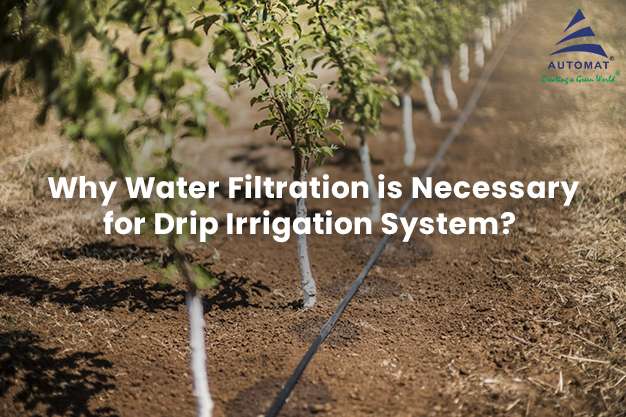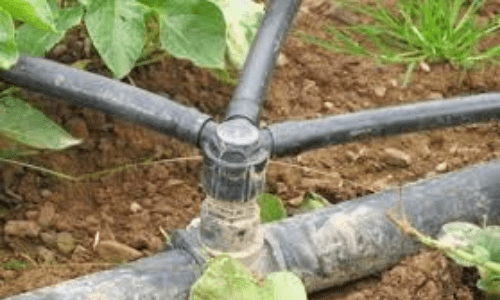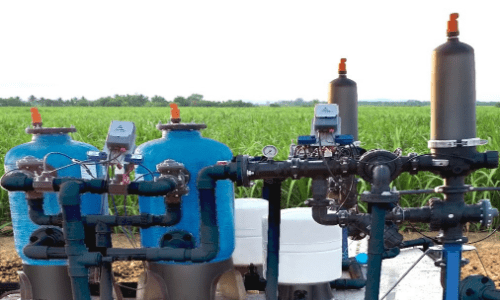This article shares a need for filters for successful drip irrigation systems while operating under various water qualities.

What is Drip Irrigation?
In drip irrigation system a small amount of water is supplied, in the form of droplets through a small diameter plastic pipe that is connected to outlets called drippers or emitters. The water is applied close to the plants so that only the soil near the roots is irrigated.
It is the most efficient way to irrigate the crops and delivers the right amount of water and nutrients at the right time directly to the plant’s roots, so each plant gets exactly what it needs, when it needs it, resulting in uniform growth of high-value crops in the entire field and therefore higher yield.
Read more: The Complete Guide To The Rain Gun
Problems Encountered
No doubt, irrigation through drip is good, but emitters usually and frequently get clogged with dirt or other contaminants from the water source. The risk of clogging increases as emitter’s sizes are smaller and if emitters get clogged, water and nutrient cannot pass through them to the crop, and the plant becomes dry and fail to grow further.

Not only emitters blockage in the drip irrigation system, but another common issue caused by unfiltered water is the malfunction and failure of other components like control valves, Air Release valve, Pressure Relief Valves, etc. Large particles can deposit on critical areas likeseals, causing valves to malfunction.
Managing a drip irrigation system can become a labour-intensive process, requiring constant monitoring and frequent cleaning. We can avoid this cost and run the drip system without any trouble, by installing the right filter.
Filters & Selection Criteria
Water quality is a key factor in the success of drip or micro irrigation systems. This can be affected by many factors
- Water source
- Condition of the pipeline
- Seasonal changes
How can you assure adequate water quality to keep your drip system functioning at an optimal level?
To a large degree, filtration is the heart of any drip system. Therefore to keep it running smoothly you have to choose the right filtration for your particular conditions. There are several parameters to help you determine the right kind of filter for your needs.
Which Filter to Choose for Drip Irrigation?
A filtration unit is required to provide filtered water into the drip irrigation system to prevent blockage of small openings/narrow pathways of the emitting devices.
In general, the following four types of filters are used standalone or in combination, depending on the size of the field to be irrigated.
- Hydro cyclone Filter
- Media Filter
- Screen Filter
- Disc Filter

The choice of primary or secondary filters or both must be made after a through analysis of the quality and source of water that will be used in the irrigation system.
- Hydro cyclone filter should be used when the water source has high sand particles load.
- Media filters are ideal forwater sources with finer suspended solids, as well as high organic load.
- Screen filters are suitable for removing inorganic particles (well water) and for water with no high value of suspended solids.
- Disc filters are suitable for the removal of inorganic particles and lesser quantities of organic substances (pond). However, they are increasingly being used as safety filters too.
Size of Downstream Orifice to be Protected
A filter is necessary to keep debris from clogging the emitters of our drip irrigation and micro irrigation systems. Emitter opening size will determine the pore, or micron, size of your filter element.
Generally, drip systems require 80-100 microns (150 – 200) filtration to keep the system smoothly running without clogging the emitters.
To sum it up, a right selected and installed filtration system will protect your drip irrigation system and ensure its proper operation and performance for years to come. It can pay for itself in a relatively short period of time and give farmers more profit in their pocket.




